The Rise of Staffless Hotels: How Technology and Outsourcing Are Changing Hospitality
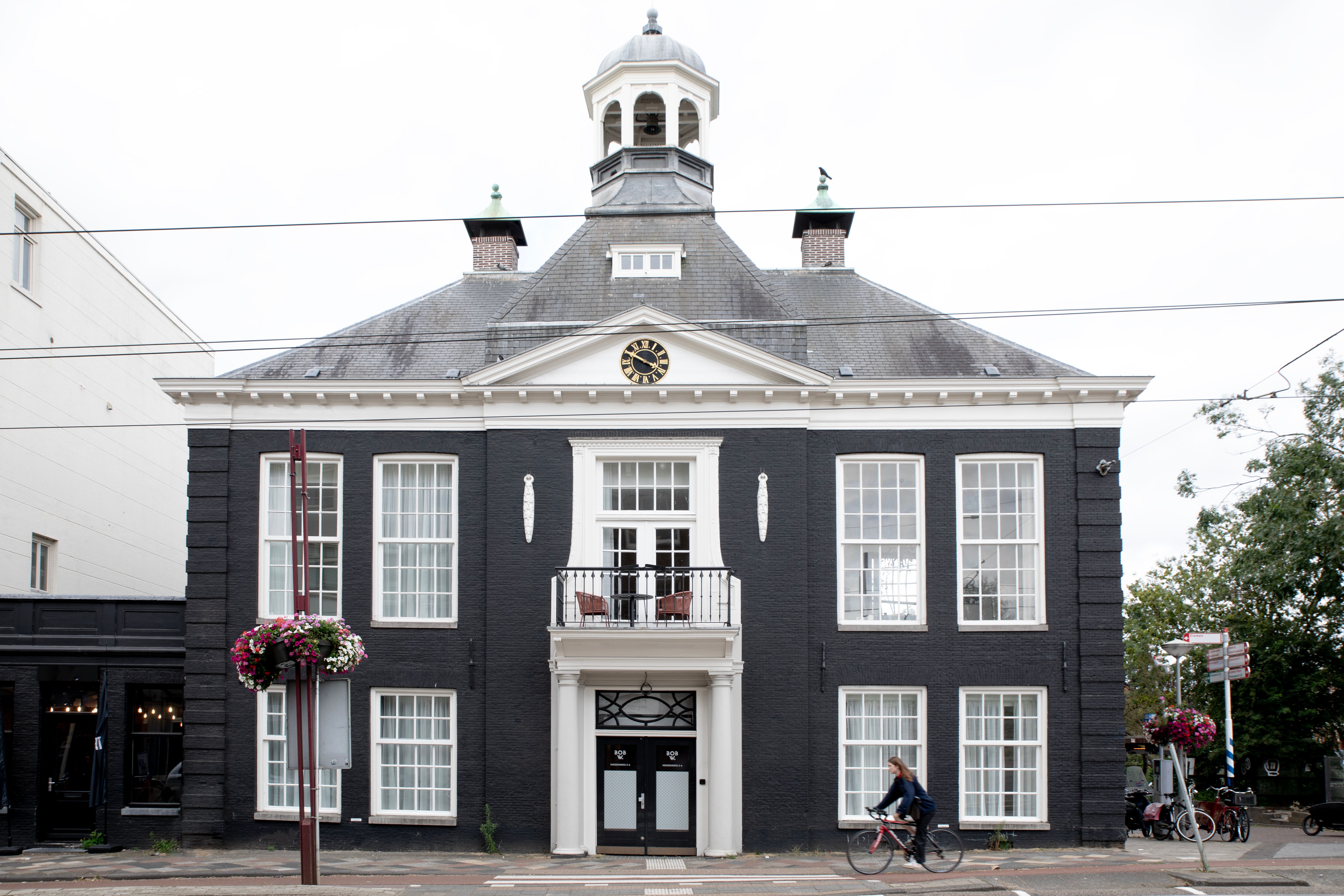
A Holographic Welcome
Imagine entering a luxury boutique hotel and being greeted by a woman the size of a gnome, projected inside a small glass box as a hologram. She makes a funny remark, showing she can see you too, instantly breaking the ice. Remarkably, she works remotely, greeting guests from hotels in different cities. Is this just a gadget, or could it be the future of luxury hospitality?
Ensuring Guests Feel Seen
Self-service is becoming increasingly normal. Guests can now check in via an app, just as they have been doing with airlines for years. Phones can even open room doors, and apps allow guests to select room types or personalize their stay. So what role does a receptionist still have? Primarily, to make guests feel welcome and seen. Yet this can also be achieved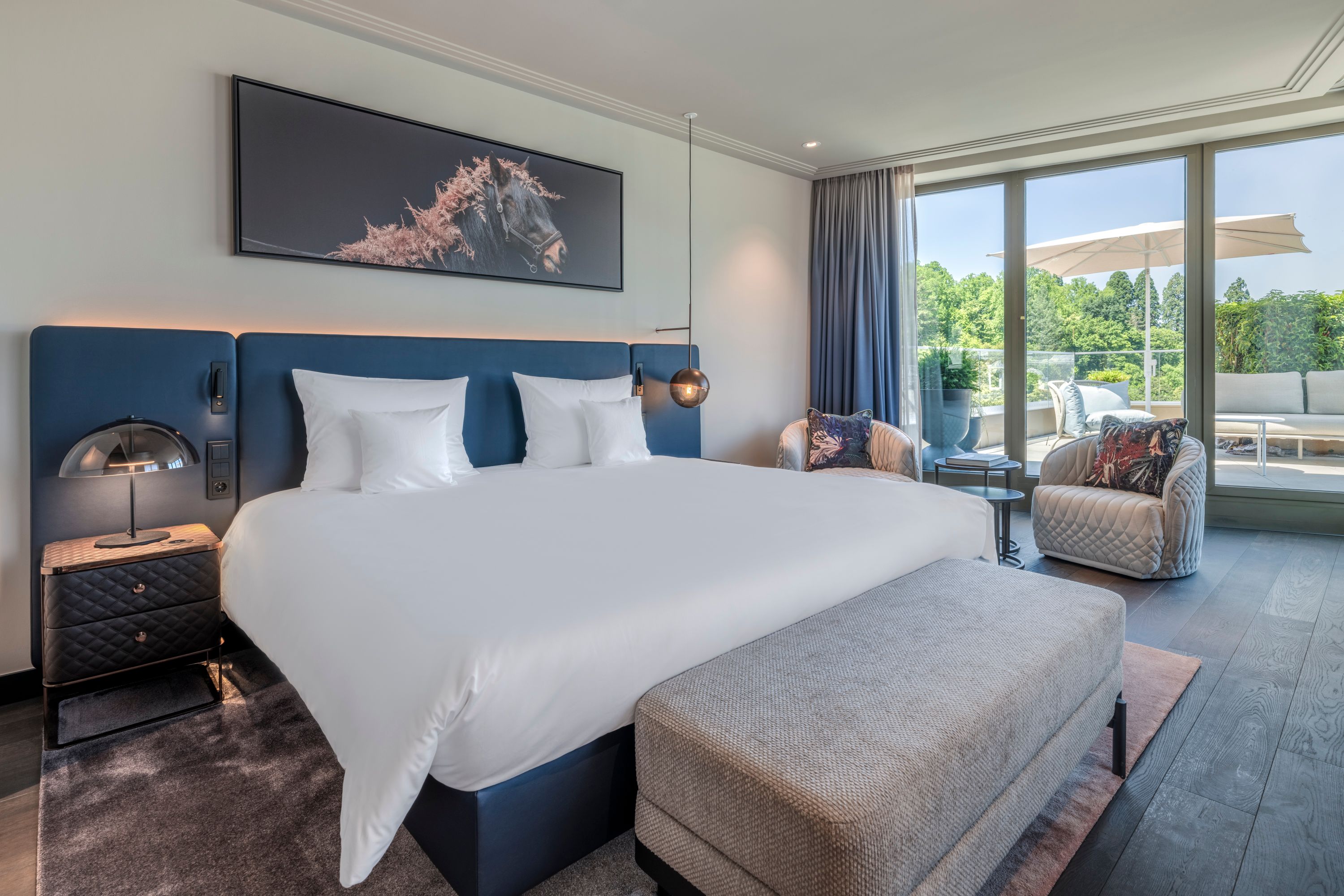 remotely. Hotels like citizenM have built their reputation around this concept, employing ambassadors who ensure guests feel noticed and at home, even if staff aren’t physically present at all times.
remotely. Hotels like citizenM have built their reputation around this concept, employing ambassadors who ensure guests feel noticed and at home, even if staff aren’t physically present at all times.
Drawing Inspiration from Retail
Hotels are increasingly looking at the retail model. In stores like Zara, you won’t find a manager, buyer, or marketing lead on-site. So why would a hotel still require a revenue manager, general manager, or buyer physically present? Many tasks can be handled efficiently from headquarters or outsourced to third parties. Guests can now choose “on-demand” services for cleaning, laundry, luggage delivery, technical support, or room service - much like ordering a taxi. Security can be handled by smart cameras with AI detection, monitored remotely by professional companies. Restaurants can collaborate with local dark kitchens, and shops can offer products on demand, from toothbrushes to massages, or even designer clothing and hangover cures via a simple app.
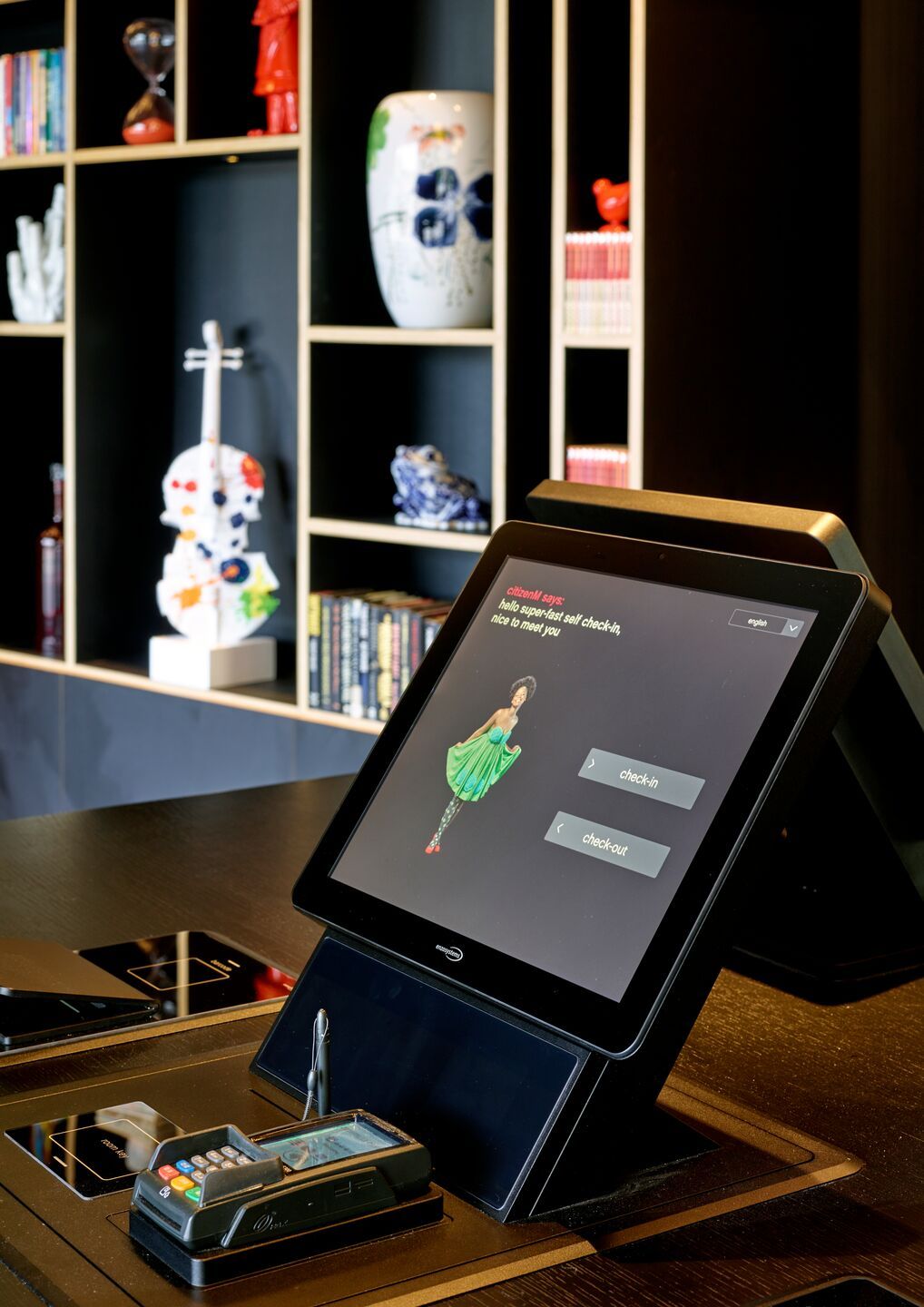 The Future: The Super-Host
The Future: The Super-Host
The reduction in hotel staff is partly due to labor shortages, but also thanks to technology. AI is replacing many hotel functions, from generating group quotes to answering routine questions like “Where can I park?” or “Can I check out later?” Grab-and-go shops in hotel lobbies operate without staff: items are automatically charged, and external parties restock the inventory. Will hotels eventually be entirely staffless? For some, yes; for others, there will always be a “super-host” present - a person who makes a cup of tea, offers a handshake, or shares a friendly comment. With routine tasks outsourced or automated, this host has the time to provide true hospitality. True hospitality will always be associated with a human smile. Yet for many services, it is now completely normal for new generations of guests to order them via an app, whether provided by the hotel itself or a reliable local partner.
Examples of Staffless Hotels:
Gaiarooms
Gaiarooms is one of Europe’s fastest-growing fully digital hotel concepts. Guests check in via an app, open their room with a smart lock, and communicate with remote staff instead of a physical reception desk. Operations such as revenue management, housekeeping coordination, and guest messaging are centralized in headquarters, allowing on-site staffing to be reduced to zero. The brand positions “staffless” as a form of efficiency and flexibility rather than austerity.
Bob W
Bob W is a pan-European hybrid between hotel and serviced apartment, built entirely around digital guest journeys. Visitors receive a code for fully keyless entry and check-in, and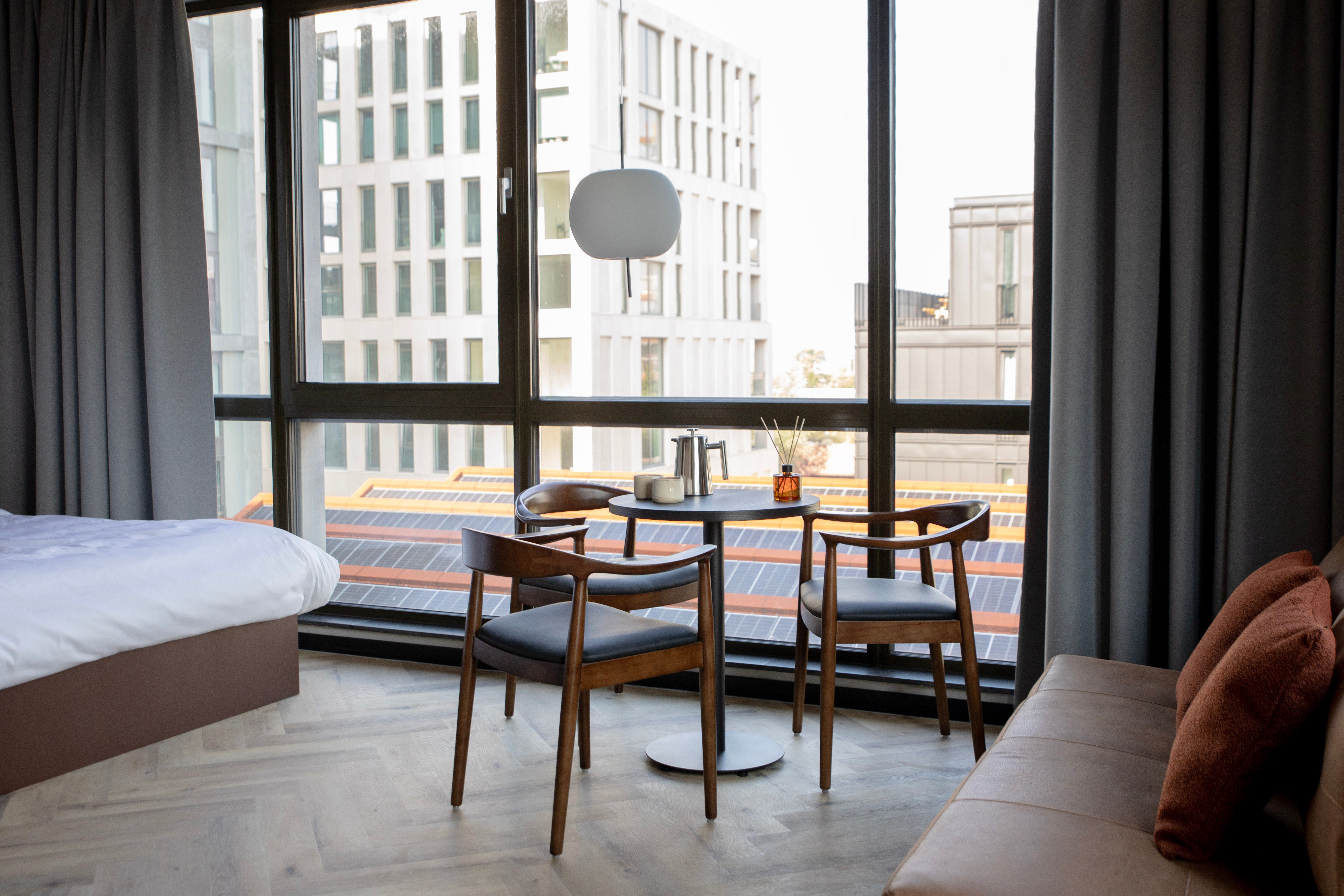 support is handled through a 24/7 remote team. Local partners handle housekeeping and maintenance, while personalized neighborhood guides and smart-room controls enhance the guest experience without requiring on-site employees.
support is handled through a 24/7 remote team. Local partners handle housekeeping and maintenance, while personalized neighborhood guides and smart-room controls enhance the guest experience without requiring on-site employees.
Zleep Hotels
Zleep Hotels, part of H World International, uses a highly automated check-in process with digital codes and self-service stations, allowing some properties to operate with only minimal staff on site. While not entirely staffless, Zleep demonstrates how Scandinavian budget and mid-scale hotels are moving toward lean, tech-driven operations where the guest journey functions smoothly even without a traditional reception desk.
CityHub
CityHub combines cabin-style rooms with a fully digital guest experience: app-based check-in, wristband room 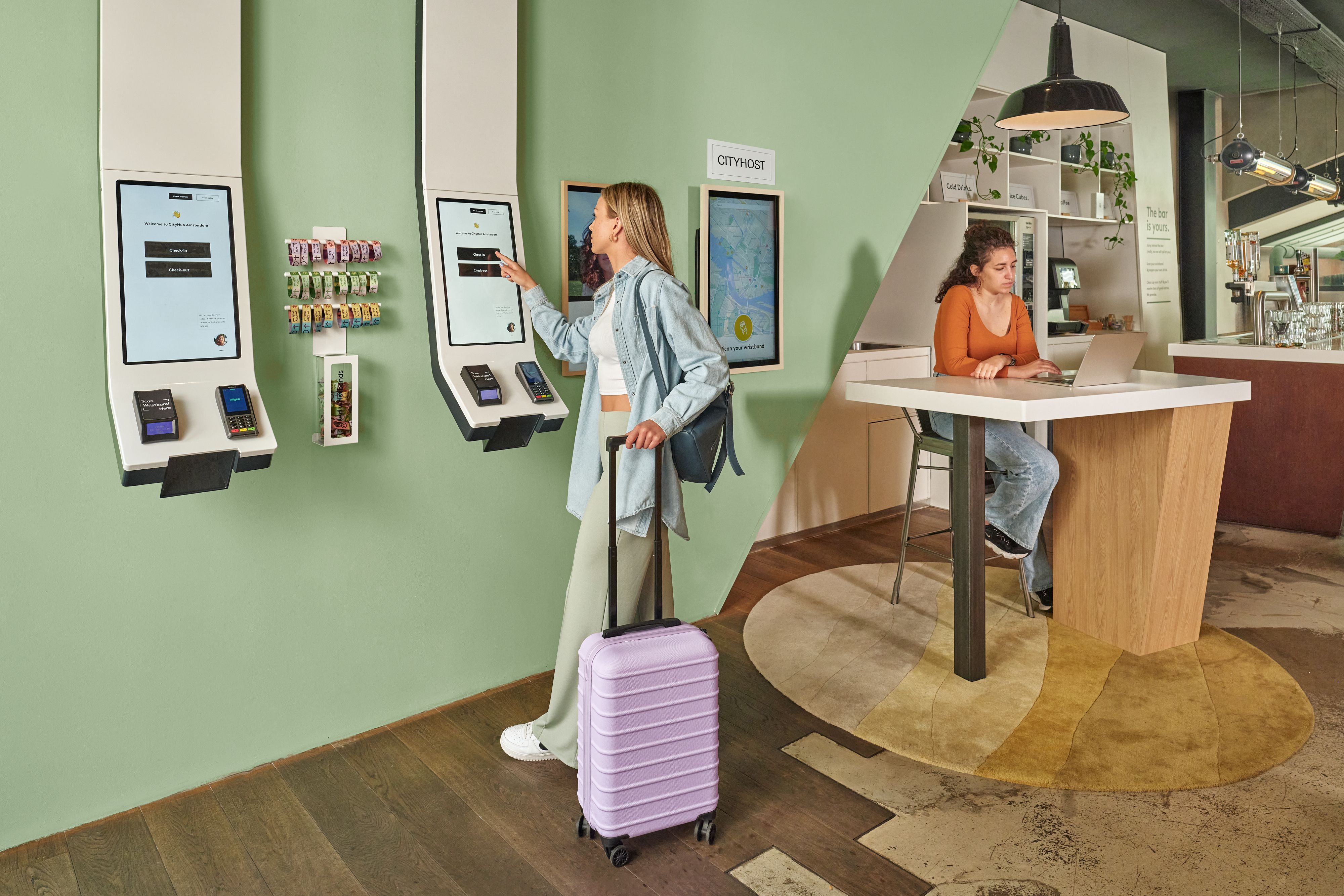 access, and chat-based support available 24/7. Instead of traditional receptionists, a small team of ‘CityHosts’ manages multiple tasks, and in some locations the service is handled remotely during quiet hours. The model proves that a trendy, youth-focused hotel can successfully operate with very little staff and heavy reliance on technology.
access, and chat-based support available 24/7. Instead of traditional receptionists, a small team of ‘CityHosts’ manages multiple tasks, and in some locations the service is handled remotely during quiet hours. The model proves that a trendy, youth-focused hotel can successfully operate with very little staff and heavy reliance on technology.
CitizenM
CitizenM hotels don’t eliminate staff entirely, but they embrace a very lean, tech-driven model. Guests check in via self-service kiosks (and a mobile app), and in-room tablets let them control everything from lighting to temperature. The result is a highly efficient operation with Ambassadors, and more focus on guest experience over rote tasks.
)

)
)
)
)
)

)
)
)
)
)
)
)
)
)
)
)
)
)
)
)
)
)
)
)
)
)
)